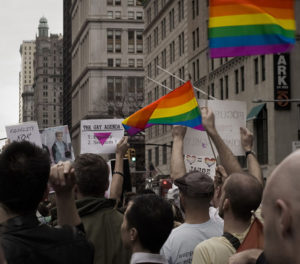|
Listen to this Article
|
Editor’s Note. As discrimination attorneys here in the San Francisco Bay Area, we keep a keen eye on litigation affecting workers and workers’ rights. In this blog post, for example, we review recent actions of the Trump administration in litigation concerning wrongful termination. If you feel that you may be facing workplace discrimination and even possible wrongful termination, reach out for a private consultation with one of our Bay Area discrimination lawyers.
In the past month, the Trump Administration has inserted its agenda in the litigation of cases affecting workers and civil rights in an unconventional manner. In two separate cases, lawyers from the Justice Department and the U.S. solicitor general joined business-interests and squared-off against agency lawyers arguing for more expansive worker protections. Government in-fighting in the courtroom over the interpretation of federal law is exceedingly rare and –as one appellate judge labelled it− plain awkward.

In oral arguments, the DOJ lawyer cast Zarda’s sexual orientation as akin to adultery and sexual promiscuity, asserting that employers were free to “regulate employees’ off-the-job sexual behavior.” He blatantly ignored recent Title VII precedent and asserted that Title VII did not prohibit Altitude Express from terminating Zarda because of his sexual orientation. The panel of appellate judges was not pleased by both the substance of his arguments as well as the DOJ’s unconventional participation in the trial.
Judge Rosemary S. Pooler commented during oral arguments that “it’s a little awkward for us to have the federal government on both sides of a case.” Other judges on the appellate panel questioned the rift between the government agencies and inquired as to why the DOJ did not defer to the EEOC’s interpretation as it normally does. Chief Judge Robert Katzmann drilled the deputy assistant attorney general on the litigation approval process and coordination between the EEOC and the DOJ in an attempt to identify why the DOJ was inserting its contrary position in the case so late in the game. He further questioned whether the DOJ’s civil rights division similarly held this interpretation Title VII’s sex discrimination that is in stark conflict with recent precedent. The DOJ lawyer evaded the question and responded that it would be “inappropriate” for him to speak on the matter.
The Zarda court reveals that the tactics employed by Trump’s DOJ hit a chord with the federal judiciary leaving them annoyed and unsettled. With that said, it will be critical to watch the Administration’s efforts in the courtroom to narrow worker protections and reverse established precedent.
Editor’s Note. This article has reviewed recent litigation on discrimination and possible wrongful termination. If you are facing discrimination up to and including possible wrongful termination, reach out to one of our San Francisco Bay Area discrimination attorneys. A quick, confidential consultation can help determine your best course of action.




